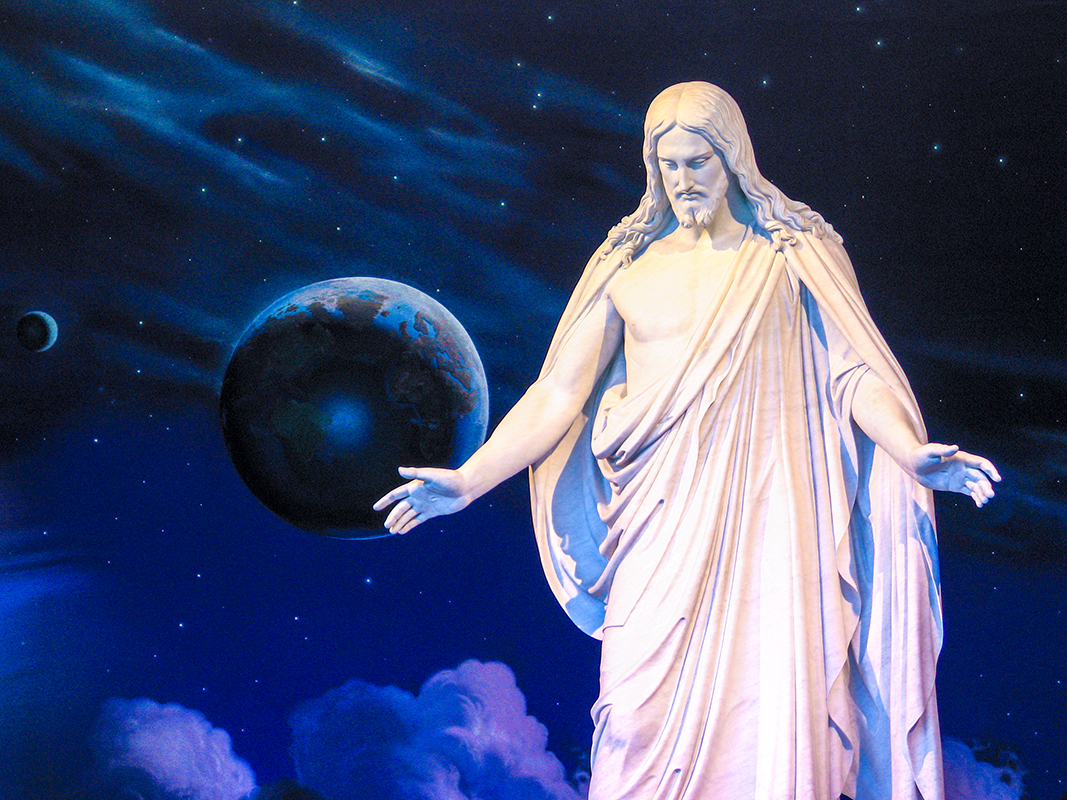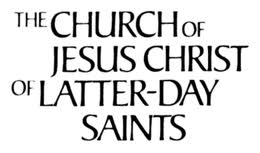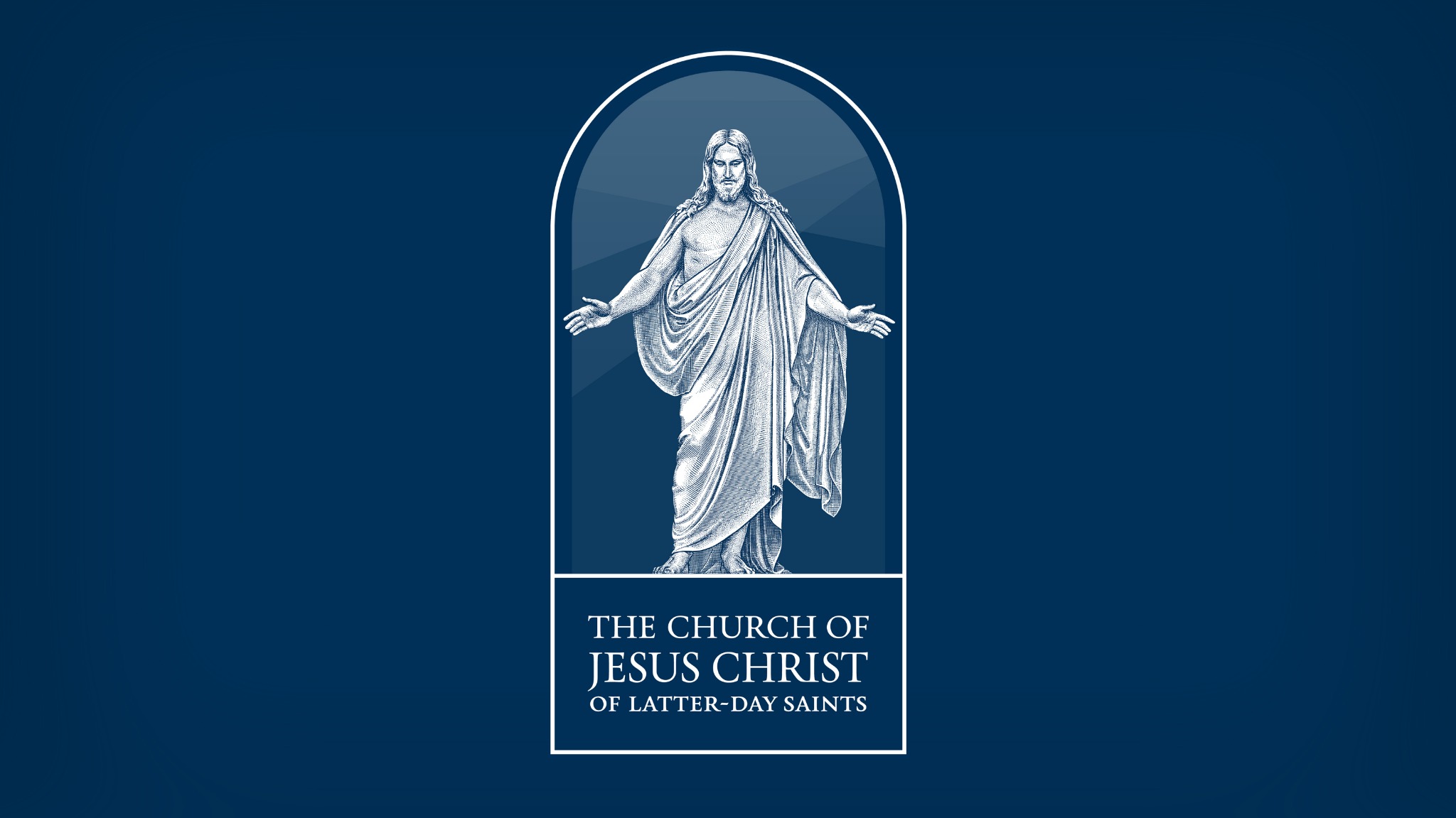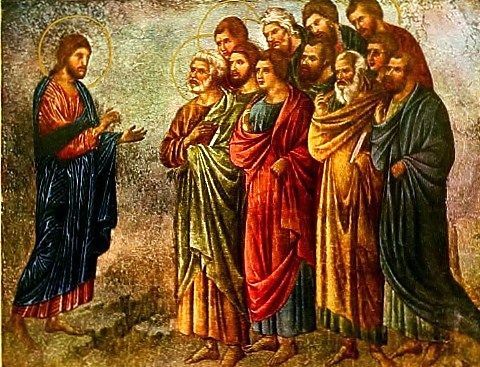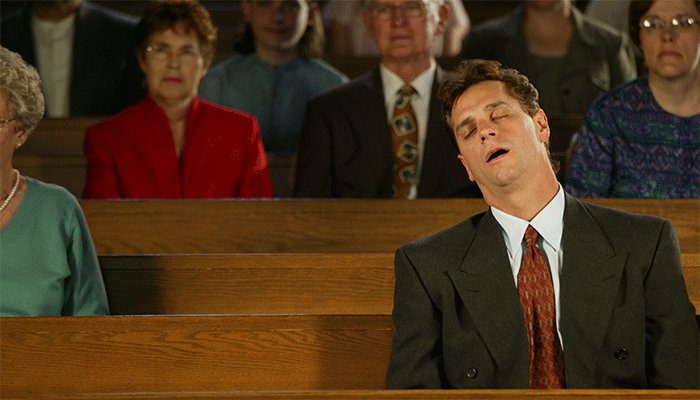The Ugly Ties
April 16, 1990
I realize the main reason you read these stories is to get a healthy dose of Elder Benjamin, but today’s story is going to be mainly about me, Elder Elder, but don’t worry. I’ll bring in Elder Benjamin a little later on — I promise.
But first, we need to go way back into the past near the beginning of my mission, at a time I could hardly speak the language, when I had to rely on my senior companions.
Early 1989 or maybe even late 1988? You’ll never know.
Yeah, I’m going to obscure the date in this story, because I’m going to talk about one of my senior companions, Elder Scrooge. And yeah — that isn’t his real name, but you can probably guess which way this story is going to go. I’m not going to reveal his identity, and giving an exact date would do just that. And by the time I’m done with him, I don’t think you’re going to like him.
Though, I should let you know upfront: He was actually a good guy. Everyone has their Elder Scrooge — someone you just don’t get along with. Some missionaries just brush off the experience and move on, but for others it can be a devastating event, even leading to PTSD. It’s not necessarily that the companion is a terrible person, but rather just a simple clash of personalities.
I may have mentioned that Elder Benjamin was by far my favorite companion in my entire mission. Well, Elder Scrooge was the antithesis of this. He was two months of pure torture. And if I had my choices, I would have chosen another companion.
However, in another way, the lessons I learned in those two months were tremendously valuable later on in life — for all the times I must interact with people who don’t quite like me. Because of Elder Scrooge, I now know how to gain the respect of people who disagree with me, and how to find ways to push forward.
It took me nearly the whole two months to realize Elder Scrooge was indeed a good person, after which I came to understand him, and I believe he finally came to understand me. And you know what? I was probably his Elder Scrooge as well.
So — now that we’ve gotten that out of the way, let’s get back to the story. Let’s destroy Elder Scrooge.
I first met him when the whole district picked me up on Transfer Day.
The tallest missionary held out his hand. “Hi Elder Elder. I’m Elder Patterson, the district leader.”
I shook his hand. “Hey, Elder Patterson.”
“And this is your new companion, Elder Scrooge.”
He shook my hand. “Hey Elder Elder. Good to meet you.”
Then Elder Patterson said, “And this is my companion — still green. Elder Bob.”
I shook his hand, too. “Hey Elder Bob. Is that really your last name?”
“Yeah.” He laughed. “It confuses people back home. So many people call me Bob. And what about your name? Elder Elder? That’s not confusing. At least in Korean it’s Elder changno.”
“I know. Otherwise it would be: Elder Elder Elder Elder Elder …”
Elder Bob laughed, but Elder Scrooge frowned. “All right, stop it you guys. We need to act like Elders.”
That interaction didn’t phase me much at the time. As the senior missionary, he was simply guiding us greenies in our interactions. But I did find it weird that he said nearly nothing to me on our bus ride back to our household.
I didn’t fully realize I was in trouble till the next day when we had our morning household prayer. Throughout my whole mission, we missionaries did this every morning — a quick prayer, hymn, and reading out of the missionary handbook, and sometimes a spiritual thought.
And here, I always shined during the hymn singing. As I may have mentioned before, I’m musically inclined — perfect pitch, good sight-reader, composer, and contagious. While most missionaries sang the melody in unison, I would get them to sing in parts. Most of the time, all it took was for me to sing bass, and eventually another would throw in tenor, and sometimes a modified alto. And it would become a thing in these morning hymn singings. It was always a positive experience, and no one ever complained — all the many times I had done this before and after my mission as well.
Well — except for this one singular time …
The hymn was 243 (149 in Korean), “Let Us All Press On,” which is famous for it’s dividing lines in the chorus. As the sopranos continue the melody with “Fear not, though the enemy deride,” the other three parts sing entirely different rhythms — a rather cool effect not present in most hymns.
So, I did what I did best. When it came to the chorus, I followed the bass. The others kept singing the melody while I sang my own distinct rhythms. Halfway through the chorus, Elder Scrooge elbowed me, and said, “Sing harmony.” And he went back to singing.
Interesting. Wasn’t I hitting the bass notes perfectly? And I heard the others singing better. What was he talking about? So I kept on singing the bass. And again he elbowed me, this time harder. “Sing harmony with the rest of us.” The other two elders eyed us disapprovingly.
I stopped and said, “I am singing harmony.”
“No you’re not.”
“Right here …,” I said, pointing to the music. “I’m singing the bass notes.”
“That’s not harmony.” Needless to say: the hymn had fallen apart.
“Yes it is,” I said.
In an angry mock-quiet whisper, he said, “You’re making a scene. We’ll talk about this after our meeting.”
It was good I wasn’t the one to say the prayer next. Elder Scrooge knew nothing about music. The word he meant to say was: “unison.” That’s what it’s called when everyone sings the same note — usually the melody. Harmony is when people sing different notes, but together, the whole sounds nice. Cacophony is when people sing differently and none of it makes sense. For some reason, I guess that’s what he heard — like I was destroying the Spirit showing off my skills. Ironically, it was he who had introduced cacophony when he talked and interrupted a perfectly nice thing.
When I tried to explain it to him, he would have none of it. He wasn’t interested in a music lesson, so he cut me off, reminding me that he was the senior, and I had to do what he said.
From that day forward, at the suggestion of Elder Patterson, I decided to sing unison in an effort to keep the peace. But in my stubbornness, I allowed it to be a daily reminder of my resentment; and also my frustration, as I knew I could be sharing my special talents to strengthen the Spirit and our relationships. But as it was, the Spirit would be visiting other households for the next two months.
A couple of weeks later.
We received a phone call, and Elder Patterson handed it to me. It was the ponbu (the mission office). Elder Simon, the AP (another missionary as assistant to the President), told me there was a nationwide music contest in Pusan, and they wanted me to enter in the spirit of outreach.
“So, what do you think?” asked Elder Simon. “Can we enter you into this contest?”
“Sure,” I said. “But I don’t have any music with me. I’ll have to compose something. That’s going to take some time.”
“Well,” he said. “You have a week. Is that enough time?”
“Maybe. I’ll have to find time throughout the day. Elder Scrooge calls the shots.”
“We can arrange it. Please put your companion on the phone.”
I was probably smiling too much when I handed Elder Scrooge the phone. He didn’t look happy. I couldn’t help feeling a little vindicated. This time he had to do what I needed to be done.
“But we’re incredibly busy,” said Elder Scrooge on the phone. “We have new member discussions, and we’re behind on our Mormon Gyeong’s.” This was a half-truth. We didn’t really do that much beyond hanging around a newly baptized high school kid, Kang-su. He had a lot of questions about the Church, supposedly, but somehow it always turned into sightseeing.
“Okay,” said Elder Scrooge. “I understand. It’s important. Sure. We’ll find time.”
A win for me! Keep in mind that we were required to accompany each other 24 hours of the day. This is true of all missionaries worldwide — taking to heart the scripture references of “two by two.” So, I didn’t have the option to disappear alone to the church and compose all day long while Elder Scrooge proselyted.
As I was to find out, these orders from the mission office still didn’t give me the authority to take over. As the senior companion, Elder Scrooge still had to dictate when I got to compose. It also meant nothing was going to happen that day, because he had to think about when I could compose.
The next day, Elder Scrooge found time for us go shopping for music paper. When I had started my mission, I had promised myself that I would set aside composing over the next two years so I could concentrate more on the Lord’s work. So, I had left all my music at home. But since I was now given a special mission to compose, it was okay to break that promise — or rather, adjust it.
We went to a cheap bookstore, and I found a cheap spiral-bound notation book. It said AMADEUS in English on the front and featured a pointillistic depiction of a conductor. On the inside: twelve staves per page (much better than the popular ten), and cute Korean markings at the top for titles and composer names.
Immediately afterward, we went to the church. While I composed, Elder Scrooge had arranged to meet Kang-su to give him the next new member discussion. So, I sat at the piano in the makeshift chapel, on the second floor above a grocery store. At the same time, Elder Scrooge sat in the same chapel with Kang-su, pretending to give a discussion. To me it looked like their usual playing around: telling jokes and stories to each other.
And so I composed. I chose an arrangement of A-ri-rang, the most famous Korean folk tune. They told me to do something Korean, and I had already announced that I would arrange a “traditional folk song.” It was going to be short, and it wouldn’t take me long to compose. All I would need was three hours tops. In a way, it felt that I was in heaven again: putting pencil to paper and shaping music.
After just one hour, Elder Scrooge cut me off. “It’s time for lunch. Let’s go. Did you finish it?”
“I’ve just started.”
“Seriously? How hard can it be? I thought you were a composer. Maybe we can come back tomorrow. We have a busy day today.”
A busy day doing nothing, really. And I didn’t get any time to compose the next day.
I suppose I could continue giving all the gory details, but I think you get the picture. At this time, you’re probably wondering, “What does any of this have to do with ugly ties?” and we’re already halfway through the story. We’ll get there. I may not be the best story teller, but I promise to bring everything together by the end. But yeah — let’s skip the next few days.
One week later
I didn’t get my three hours to compose. I did get in one more session that didn’t last long. In the eyes of Elder Scrooge, I had had sufficient time.
The day of the contest, I went over Elder Scrooge’s head and arranged with Elder Patterson to get us all there one hour early so I could finish the arrangement. Since all four of us got to go, it was Elder Patterson’s decision.
Unfortunately, the trip to Pusan took a few minutes longer, and it took us at least twenty minutes to find a piano where I could compose, so that hour quickly became less than half an hour. And I hurried to finish the composition — I had already written down the beginning and the end. I also had most of a middle part, which imitated the Chopin music I heard every day in Korea as students practiced with their windows open. However, I didn’t have the transition from middle to end. If I had 30 uninterrupted minutes, I could have pulled it off, but all three elders were talking — about me — and my procrastination till the last minute. Very distracting, and I couldn’t compose well when I was angry.
When I wasn’t finished yet, Elder Patterson said, “We’re being called in. Time’s up.” Dang! The idea was in my head — I could probably ad-lib the last transition into the ending, but on national TV? And I was already feeling butterflies in my stomach. No — I couldn’t trust myself. I would have to do something drastic: play something else I had memorized. But what?
I didn’t make my final decision until I was on stage. The host asked where I was from, and then he said, “I hear you’re going to play variations on a famous folk song. What are you going to play?”
I smiled and answered, “See if you can guess.” I still didn’t know. It wasn’t too late for A-ri-rang. I could still wing the transition. But as I sat, I found myself pushing my music aside, and I played the third movement of my sonatina, which sounds a lot like Twinkle, Twinkle Little Star. In the style of Mozart, I played it up - doing all the faces and dramatics. There was laughter, and then clapping at the end.
The host said, “That was great. Thank you!” and he motioned for me to leave the stage.
I made my way up to where the elders were sitting in the balcony. All three of them seemed to ignore me while at sat down. About a minute later, Elder Scrooge said, “I though you were going to play A-ri-rang.”
I answered, “I went with another folk song.”
No one else spoke: not even a “good job.” Maybe it was because the next act had started.
The talent show continued. A woman danced while playing Korean drums. Some people sang. One guy did a magic trick. A kid played the piano — something classical — cute but a few mistakes.
When the show was over, the awards came. There were twelve contestants and six prizes to give. They started with sixth place, so I was happy not to be one of the first ones called. After third place, I was getting a little nervous. The kid who played piano got second place. So, this was it. I either got the big prize: first place, or I got nothing. And it was … the Korean drums lady.
What? That classical kid wasn’t really that great.
“Oh well,” said Elder Patterson.
Elder Scrooge said, “You really should have stuck with A-ri-rang.”
Elder Bob said, “Is it time to go yet?”
On the way out, some Korean producers caught up to us. He excitedly said something fast — too fast for me to understand him. Then he turned to Elder Patterson and tried again.
Then Elder Patterson explained to me. “They messed up. They called the wrong piano contestant. It was you who really won second place. He wants to show you the prize you won.”
The producer led us into the department store section of the building, which had several floors. In the clothing department, he showed us an expensive fashionable jacket — very nice. However, by American standards, it was very feminine, and I didn’t want to wear it. The producer understood, and then gave us equivalent store credit. “Buy whatever you want.”
Elder Scrooge groaned, but he had no choice but to tag along while I chose my gift. I knew I had to choose quickly, but I also knew what I wanted. To the electronics department!
I found it: a nice compact, cool radio/tape player — the kind you could put in your pocket. However, it didn’t cost enough. I had to get something else.
So, I shopped sheet music. I found a copy of George Winston’s December, something that wasn’t available yet in the US. I also bought a Prokofiev book and a Chopin book, and that wiped out the rest of my credit.
Eventually Elder Patterson did say, “Good job, Elder.”
After which, Elder Scrooge said, “I can’t believe you wore that ugly tie today.”
And you know what? I really couldn’t argue on that point. All of my ties were ugly. They were either all strange colors or super fat. I don’t think I owned any skinny ties. I had perhaps one decent black tie, but when combined with my usual black suit, it looked like I was going to a funeral. For the contest, I chose a tie that had a lot of red, yellow, and blue to honor the Korean flag. The funny thing was, the colors were so disorganized, I don’t think anyone ever saw it as being “Korean.”
Right before my mission
My mom bought most of my ties. Before my mission, most of my ties were clip-ons. But when I became a priest at 16, my mom figured I needed to upgrade to real ties. She took me in to buy a new suit, and the guy in the store taught me how to tie a Windsor knot, which I picked up very quickly. My mom bought two ties on the spot, and those replaced my clip-ons. To this day, I use nothing but the Windsor, as I still don’t know how to do the half-Windsor or any of those other knots.
And as you could guess, fat ugly ties with full Windsor knots are fat blobs of ugliness under the neck.
Over the next couple of years, I would help pick out a couple more ties, and they would always be full of crazy bright colors. And when my mother went mission shopping without me, she bought a whole bunch of similar ties. So, I’m not sure if I should blame my mother or myself. At the time, it didn’t matter, as I personally loved those ties, and I always wanted to stand out.
My favorite tie had all the colors of the rainbow. It reminded me of my favorite musical at the time: Joseph and the Amazing Technicolor Dreamcoat. But alas, that tie didn’t survive Elder Heimuli. One day he accidentally spilled something on it, and he felt so bad he tried to fix it himself. He put it through the washer and then tried to dry it with an iron. It didn’t work.
And oh — I’m sure you’ve heard about the common missionary tradition of tie exchanging. About every 4-to-6 weeks, we would have transfers. And whenever anyone left to another area, we were supposed to exchange ties. It was a way of remembering each other while building up a larger variety of ties.
Well … during my entire two years on my mission, not a single one of my districts participated in this tradition. One time a greenie suggested it, but the other two missionaries in the house shot down the idea quickly with some lame made-up excuse. In hindsight I can see why. And to be honest, I didn’t want to part from my unique ties.
Back to Elder Scrooge
Anyway, you get the picture. Elder Scrooge didn’t like my ties, and it seemed like he didn’t like me either. But it did get better. He started going out of his way to be nice, and he even allowed me to sing harmony. So, the two worst months of my best two years weren’t in vain. He could have done better, and I could have been less stubborn, but ultimately we did learn to have respect for each other. Valuable lessons learned.
And the best part: I had my own fancy radio tape player to remember it all.
Now that you have the background, we can finally get to our real story.
Back to April 16, 1990
“What are you thinking about, Elder Elder Elder Elder Elder …?”
Yes. There he is. Elder Benjamin! The four of us were returning home after a fun P-day. That’s short for Preparation Day, which was the one day each week we got to rest from proselyting, giving us time to write letters, sightsee, and whatever else we felt we needed to do to relax and prepare. Today it had been another hike on Apsan Mountain.
“Oh, nothing,” I responded. “I’m not thinking about anything.”
“You’re staring at nothing,” said Elder Benjamin.
Elder Riley asked, “Did you get a Dear John letter?”
“Thinking about those Mormon Gyeong goals?” asked Elder Johnston as we approached our new apartment.
“Come on,” I said. “I’m not …”
“Hey — wait guys,” said Elder Riley. “Look at our window!” He pointed up to our second-story apartment and broken glass.
“What? How?” said Elder Johnston. “Somebody’s in there? Let’s get ‘em!”
Elders Riley and Johnston charged toward the stairs, but then Elder Benjamin yelled, “Stop!” which shocked all of us. He never yelled.
“The Spirit tells me not to go in there.”
“What?” said Elder Johnston. “Why? Too dangerous?”
“The Spirit says we need help.”
“Seriously?” said Elder Riley. “They’re taking our stuff. What about all that money we just pulled out of the bank? We can’t afford to lose it. And we still haven’t finished unpacking after our big move. They’re going to take everything!”
“Something bad will happen if we go in there,” said Elder Benjamin.
“Somebody followed us home from the bank,” said Elder Johnston. “And they waited for us to be gone a long time. Maybe they’re already gone.”
Elder Benjamin’s eyes were wide — his usual spiritual face. “They’re still in there. I know it.”
I said, “No Ji-su lives near us. Let’s go get him. He’ll know what to do.”
We went to apartment of Ji-su, who was one of the church members — a strong man in his early thirties. He answered the door quickly, and when he heard of our plight, he grabbed a baseball bat and went with us back to our apartment.
Our door was wide open. Ji-su went in first. He yelled something in Korean — something I didn’t understand. We missionaries weren’t taught very many words that didn’t relate to our work or everyday living. After half a minute, we felt safe to go inside, while Ji-su continued his search through our rooms.
The several moving boxes we had laying out in the main living room were open, and stuff was thrown everywhere: mostly clothes and books.
“Nobody’s in here!” yelled Ji-su from our room. “They went through everything.”
“They heard us outside,” said Elder Benjamin. “When we left to go get help, they left. And no one stopped them.”
“We could have stopped them,” said Elder Riley.
“No,” said Elder Johnston. “I think Elder Benjamin just saved our lives.”
Ji-su left to go fetch the police, and we went through all our stuff, taking inventory.
Elder Benjamin and I went to our room. Every drawer in my dresser was opened. The first thing I looked for — my radio tape recorder — was gone. Two of my wallets were emptied of their money, but all other cards and pictures remained. That was nice of our assailants. And yeah — I don’t remember why I had so many extra wallets. My mother was going to be upset, as we weren’t really any kind of rich, and I had just taken a month’s worth of money out of the bank.
“They took all my money,” said Elder Riley from the other room.
“They took my suits, and left me with just one,” said Elder Johnston.
“They got all of my ties,” said Elder Benjamin.
“Me too,” said Elder Riley.
“Let me look,” said Elder Johnston. “Oh, crap! Seriously?”
I ran to my own closet and said, “Interesting. They didn’t take any of my ties.”
Elder Riley laughed. “Why am I not surprised?”

